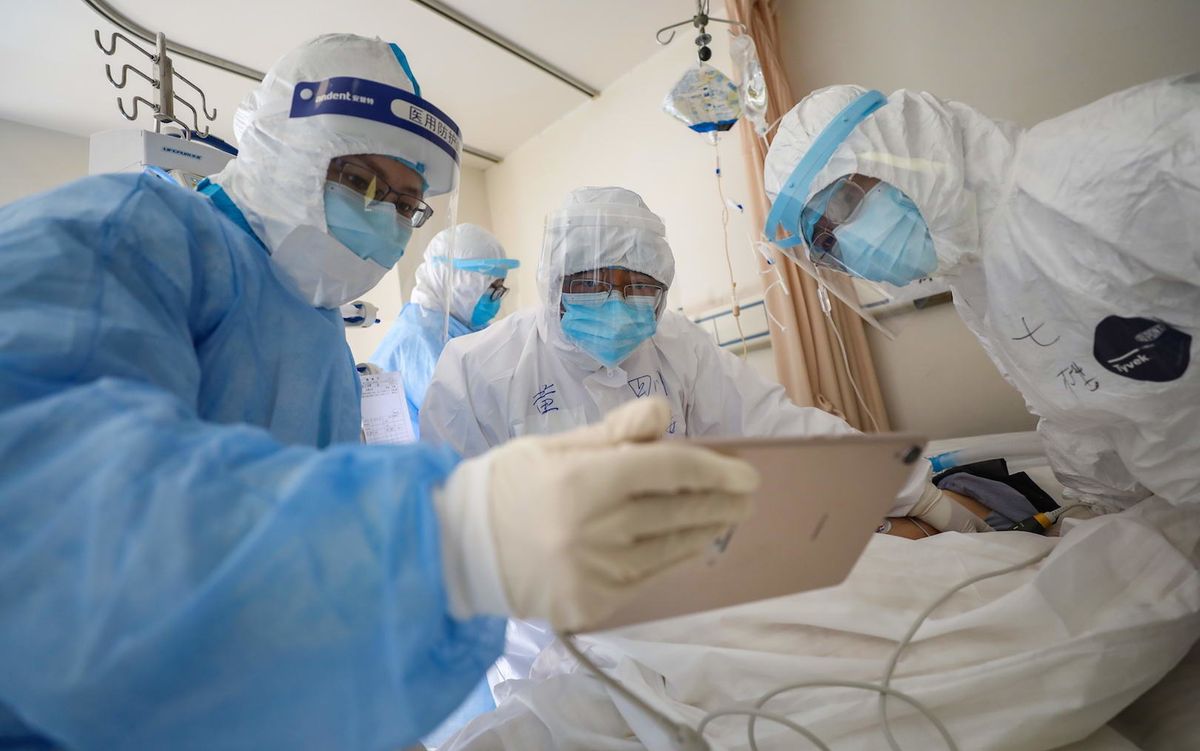The coronavirus which was thought to be only the infection of the lung has not been detected in fecal samples. The virus was found in the sample of the patient who could not survive the infection which suggests the virus might also spread through the fecal-oral route in humans. The virus usually spread when a person comes in contact with droplets from another person’s mouth through coughing or sneezing.
A team of researchers from China has isolated fragments of the genetic material of the virus in the stool samples of around a dozen infected individuals.
Also read- You Can Eat Pasta in a Weight Loss Diet, says New Study
A study was published in the journal Emerging Infectious Diseases which was led by a team from Guangzhou Medical University showed that in some of the coronavirus patients, the viral components were found in higher amounts in stool samples as compared to the respiratory samples.
The patient considered for this study by the research team was a 78-year-old COVID-19 positive patient who was diagnosed early this year.
On 17 January, the patient was admitted to a hospital in China in Guangzhou who was suffering from a cough and irregular fever. The CT scan of the patient also showed an abnormality in the chest area. Less than a week later, his health began to decline and he was shifted to the ventilator on January 22.
The genetic material of the virus was detected in four samples of the fecal matter of the patient. The samples were collected from January 27 to February 7. A few days later on February 20, the patient died due to the coronavirus.
The researchers visualized the sample using a transmission electron microscope after negatively staining the culture residue. They observed spherical particles of the virus with spikes on the envelope which is a characteristic of the coronavirus.
In the next phase of the study, 27 samples were collected from patients out of which 11 patients had the RNA of coronavirus in their fecal sample.
The research team was then able to isolate the virus from two COVID-19 patients in the live form which is an indication that the coronavirus is commonly found in the feces of people infected with the coronavirus.
Furthermore, the fecal samples which were collected a few weeks later after diagnosis had a more viral load in the fecal sample as compared to the respiratory sample.
After 28 days, only fragments of the virus could be isolated from the stool sample and live infectious virus could not be isolated. The novel virus is from the Severe Acute Respiratory Syndrome (SARS) virus family and presence in the stool is the characteristic indication of infection of the SARS virus.
Also read- UK Hospital Starts World’s First Medicinal Trials of Cannabis on Children Born with Brain Injuries
In 2003, there were hundreds of SARS positive cases reported at Amoy Gardens housing estate in Hong Kong which was believed to spread from the fecal specimen.
The researchers said that the presence of coronavirus in the fecal sample is an indication that it could be spreading through the fecal-oral route and the hospital staff should take special care in terms of coronavirus patients as the patient dies or discharged from the hospital to prevent the spread of the virus in the hospital facility.


